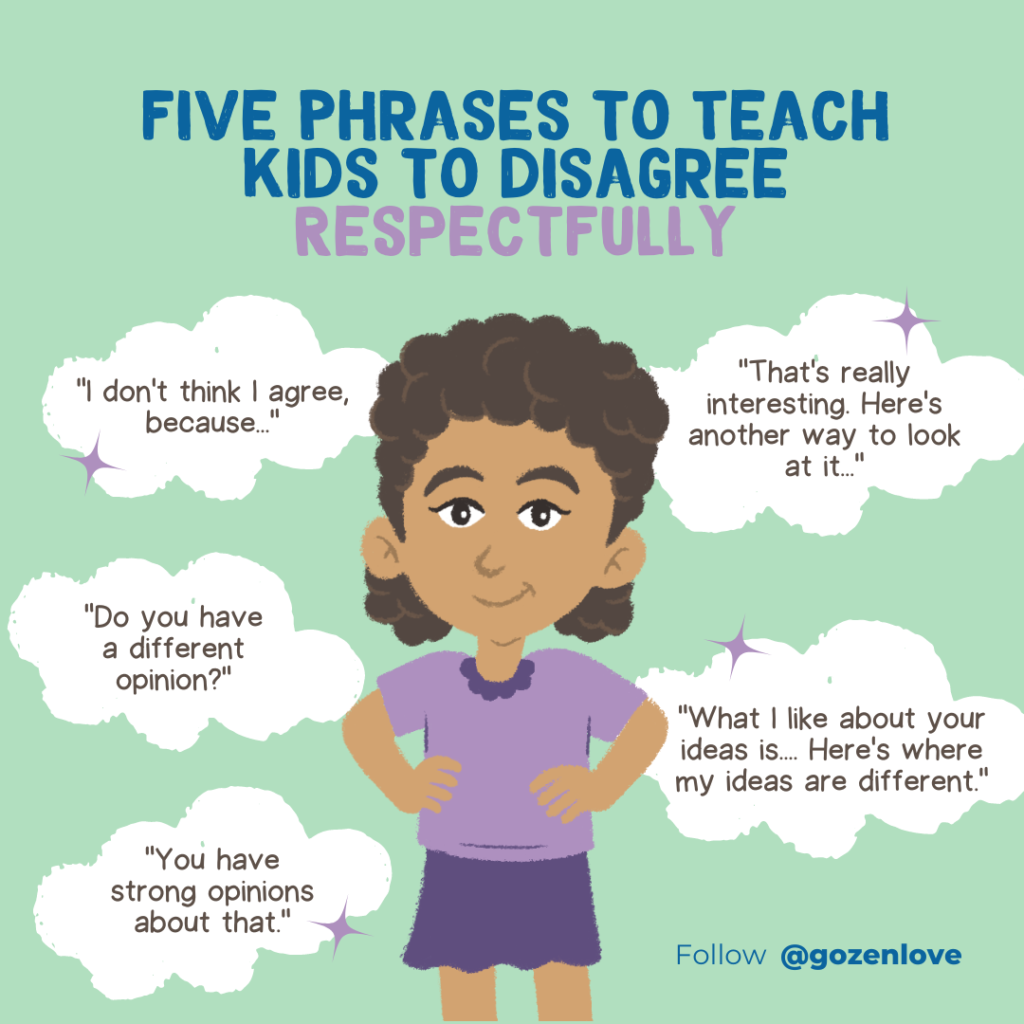“I can’t believe you like soccer! That’s so boring and dumb!”
“No way we’re doing it that way. That’s the worst idea!”
“That’s not true at all! I’m a way better drawer than her!”
Sometimes it feels like our kids can fight about anything. Whether it’s with friends, siblings, or parents, the slightest differences of opinion are grounds for put-downs, heated arguments, and outrage. All of which, of course, leads to hurt feelings, loss of confidence, and an inability to communicate effectively or resolve conflict.
Unfortunately, it’s kind of hard to blame them, isn’t it? Many of us adults haven’t set the best examples over the last few years. It seems like respectful disagreements and productive arguments are a lost art for humans of all ages.
But it doesn’t have to be! We can teach our kids (and re-teach ourselves) how to disagree with one another, but do so in a way that’s healthy, kind, and respectful. These kinds of communication skills are essential for building resilient relationships.
Here are 5 simple phrases we can start with, along with explanations of why they’re effective. The “why” may not be important for kids to understand, but once they hear you model the approach and use the phrases yourself, they’ll catch on soon enough.
1. That’s really interesting. Here’s another way to look at it…
By showing appreciation for the opposing view, your child lessens the chances that their own perspective will be heard with any aggression or ill-intent. Not only that, but by speaking those words, your child is adopting a positive perspective by choosing “interest” in differing opinions rather than discomfort.
2. Do you have a different opinion?
When someone disagrees with you aggressively, this phrase is highly effective in taking the sting out of their reply. You’re reminding the other person that their thoughts are opinions and not facts, and that everyone’s may be a little different. In addition, it’s a good reminder for your child that the other person’s thoughts aren’t necessarily facts.
3. What I like about your ideas is (…). Here’s where my ideas are different.
You’re establishing common ground. When you agree in certain areas, you have a good foundation on which to further the conversation. Plus, by complimenting the other person’s ideas or thoughts, you’re sort of inviting them to reciprocate. Of course, we don’t want our kids to need that kind of validation, but it’s a happy side effect if it happens. 🙂
4. You have strong opinions about that.
This phrase can be the period at the end of a conversation. Perhaps you’re both expressed your feelings and there’s nothing left to say. Perhaps your child isn’t comfortable continuing the conversation. This is a completely neutral statement that requires no further comments. It can be a respectful end to the discussion.
5. I don’t think I agree, because (…)
While respectful, there’s no frills, no fluff, and it gets right to the point. Just take the time to explain your perspective in a logical way. By including the word “think,” you’re suggesting that it’s possible you’re wrong, and you’re not walling off debate. In a respectful dialog, there should always be room for minds to be changed.
Disagreements can be healthy and productive. Not all arguments are bad. By teaching our kids to respectfully exchange ideas, we’re setting them up for greater resilience in their relationships.
Looking for more help for your kids navigating anger and arguments? Check out the Anger Transformation Activity Kit! It’s packed with constructive resources to help kids get along better with siblings, be mindful of their tone of voice, and foster conflict resolution skills! The best part is, if you’re a Professional or Family member, you already have this resource! Just check under activity kits on your dashboard!

This is great thanks! I have a 13 year old daughter and this will really help her communicate better to us.